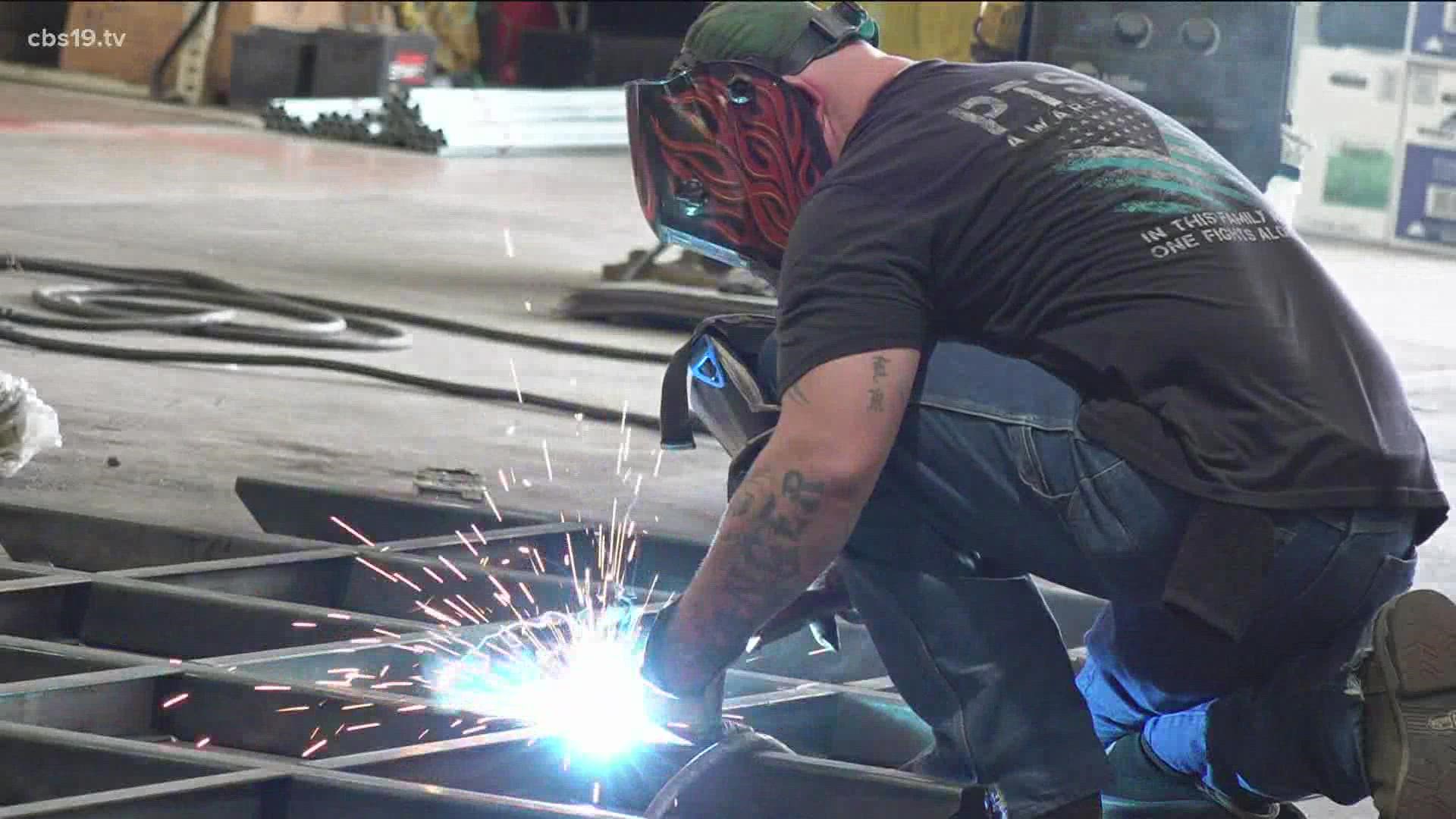TEXAS, USA — Last February's storms were the wake up call Bao Ho didn't know he needed. He, his wife, their two teenaged sons, and three dogs spent a week cooped up in one hotel room. The drive there was brutal.
Ho said, "cars were flipped over, you know, and I said to myself that 'I can't do this anymore.'"
He decided what he could do is prepare for the next big catastrophe by securing lots of food, water, power supply, and weapons.
"I have boxes of dry food. I have a ton of canned food just sitting and waiting in the back storage. We decided to do solar power because eventually I need some type of power in the house," Ho explained. "I have a grab bag for my ammo and my guns so if I do need to grab weapons that's ready to go… I know it sounds a little crazy, but you know if I don't have a bomb shelter if things were to go crazy, can I defend the house?"
Gary Lynch manages Rising S Company in Murchison, TX. The facilities build all sizes of bunkers and bomb shelters.
"Bomb shelters is the place to be with level of protection that comes from the earth and from the air that you breathe," Lynch said.
The shelters are designed protect those inside from the potentially toxic air outside during an emergency like nuclear war. People can stay inside for as long as they have food water and no need for medical attention.
The shelters have been in high demand since war started in Ukraine.
"The morning after Putin invaded Ukraine, our phone started blowing up literally the next morning," Lynch said.
In that first week, he fielded 3,000 calls. That's compared to an average week when he would normally only take 30-60.
Building a shelter can cost as little as $45,000 and can climb into the millions.
Lynch says the company sold a 14-million dollar shelter that included a pool, underground horse stables, a bowling alley, theater room, and gun range.
"If you can have it above ground, we can put it below ground," Lynch said.
His best advice is not to act on impulse. Do your research and make a plan before committing.
Former FEMA attorney and emergency preparedness expert Katie Belfi said prepping starts within yourself.
"When push comes to shove, it's not the stuff that's going to save you it's your skills," she said.
Learning how to respond under pressure, stay calm, and communicate efficiently are invaluable in emergency situations.
Belfi continued, "If we can get people thinking about being prepared as a way of taking care of themselves all the time, not just when a disaster is coming, we'll all be better off."
Belfi said to mute the voice in your head trying to convince you it could never happen to you and the feeling that if you can't do it all, you may as well do nothing.
Bao ho muted that voice in February 2021.
He said "Preparation is about one thing, it's giving yourself a fighting chance to last a little longer."

